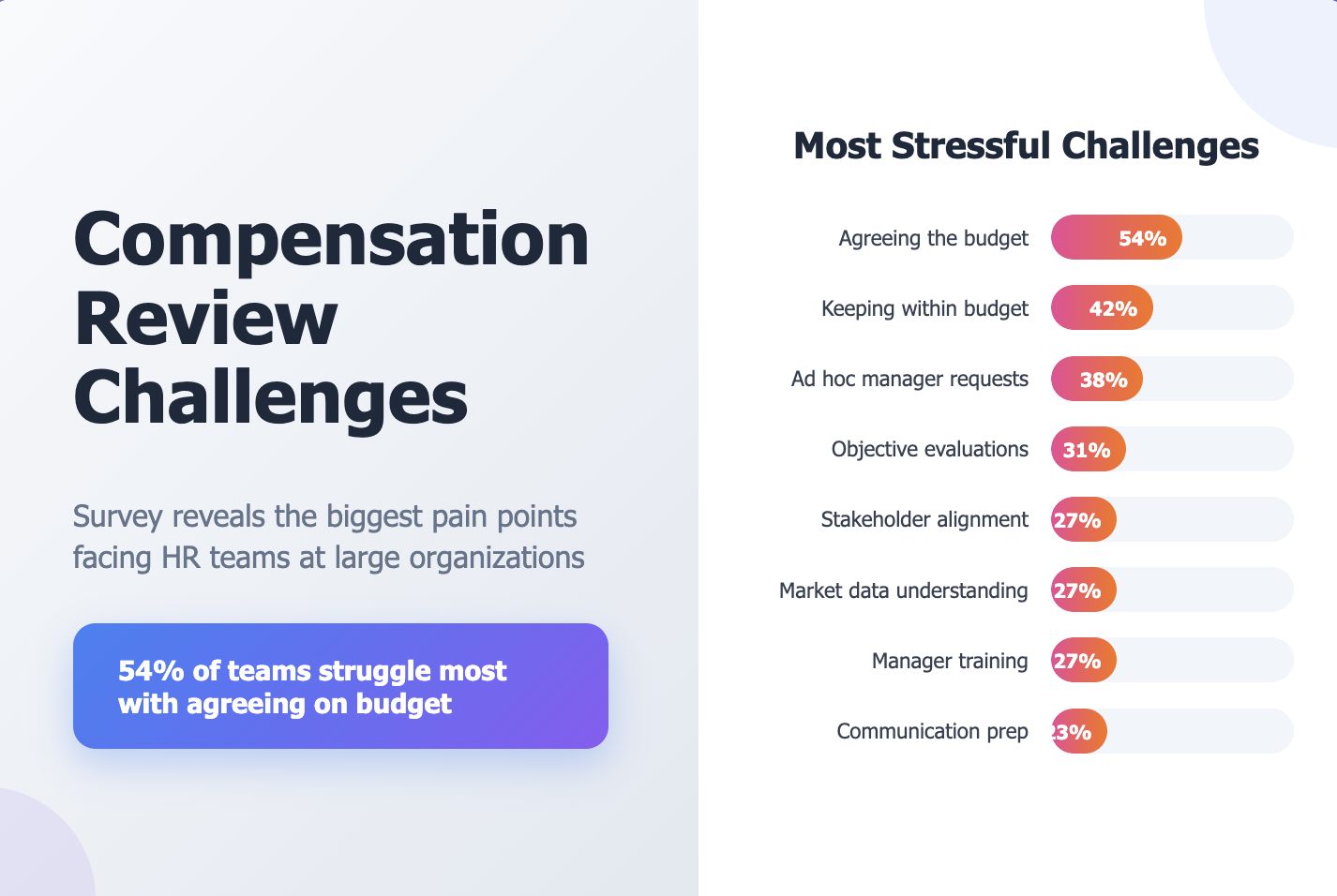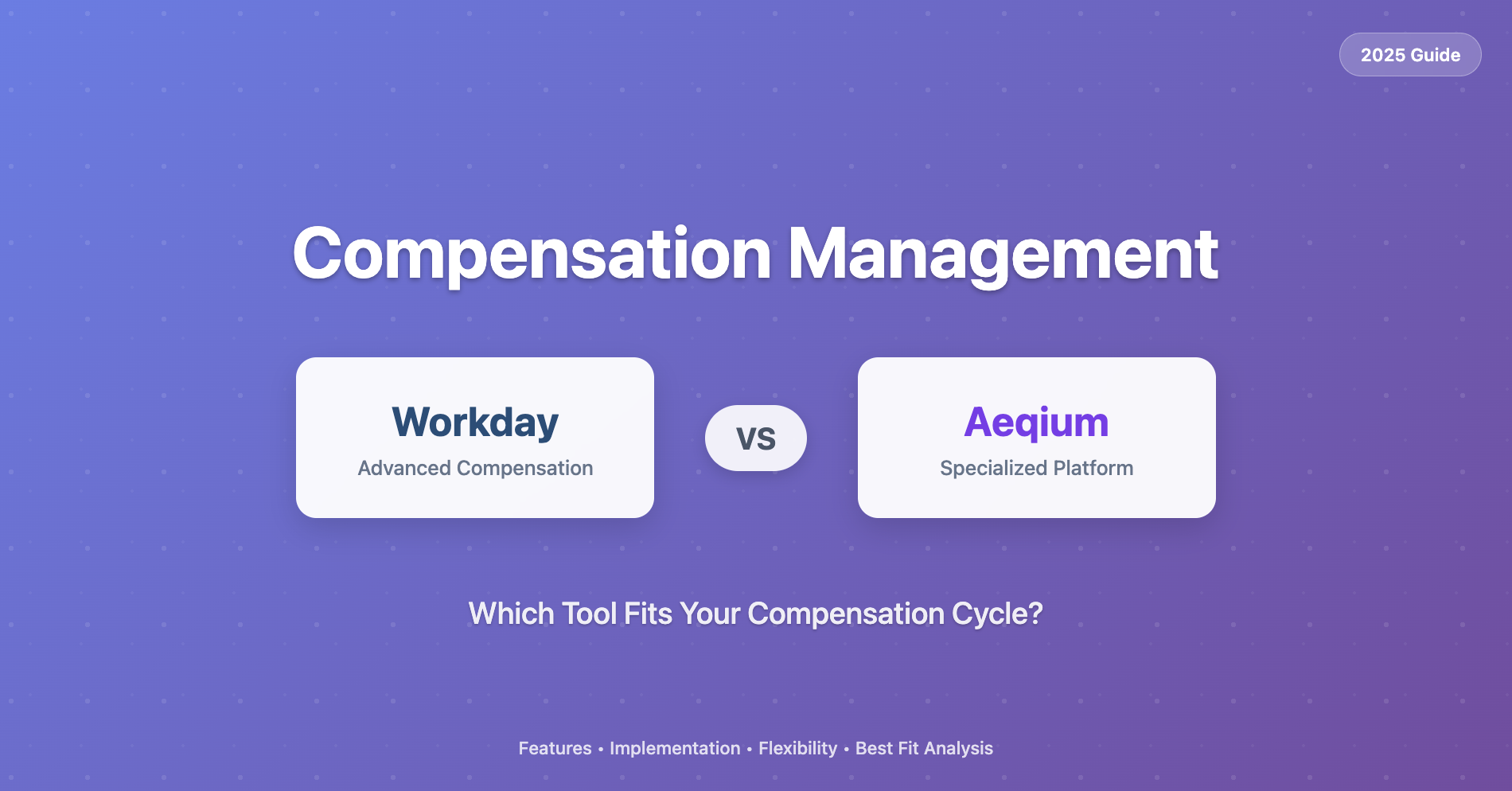How to Help Employees Understand Their Compensation

In today's evolving workplace, effective compensation planning and communication have become critical priorities for organizations. With increasing pay transparency legislation and growing employee expectations, companies must develop comprehensive strategies to communicate total rewards effectively. In this expert guide, Eleanor Quin, Senior Director of Global Compensation at Novavax, shares invaluable insights on building and implementing successful compensation communication programs.
The Evolution of Compensation Planning and Transparency
The landscape of compensation planning has transformed significantly over the past decade. Key drivers of this transformation include:
- Growing Legislative Requirements: Five additional U.S. states are implementing pay transparency laws in 2025, following the lead of Washington, California, and Colorado
- EU Pay Transparency Regulations: Upcoming European Union requirements are setting new global standards
- Shifting Employee Expectations: Employees increasingly demand clarity and understanding of their total compensation
- Industry Leadership: Progressive companies are setting new benchmarks for compensation transparency
According to recent Aon research, approximately 75% of U.S. companies still need to improve their compensation communication strategies to meet basic transparency requirements.
Building an Effective Compensation Planning Framework
1. Secure Executive Alignment
- Assess executive team's stance on transparency
- Identify knowledge gaps and concerns
- Build buy-in through education and strategic planning
- Develop aligned messaging across leadership
2. Create Cross-Functional Support
Essential stakeholders include:
- Executive leadership team
- HR business partners
- Department managers
- Employee representatives
3. Develop Manager Capabilities
Key focus areas for manager training:
- Understanding compensation structure
- Making informed pay decisions
- Communicating decisions effectively
- Handling challenging conversations
- Building confidence in compensation discussions
Best Practices for Implementation
- Create Diverse Focus Groups
- Include managers at different experience levels
- Represent various departments and functions
- Include both supportive and skeptical voices
- Establish Clear Communication Channels
- Define primary communication paths
- Balance manager-led and HR-supported communications
- Create consistent messaging frameworks
- Measure Success Through:
- Employee engagement surveys
- Manager capability assessments
- Retention metrics analysis
- Focus group feedback
- Post-implementation reviews
Key Success Factors for Total Compensation Management
To ensure successful implementation of your compensation planning strategy:
- Prepare Managers Thoroughly
- Conduct pre-cycle training
- Provide communication tools and resources
- Offer ongoing support during implementation
- Monitor and Adjust
- Gather regular feedback
- Track key metrics
- Implement improvements based on data
- Maintain Momentum
- Regular education sessions
- Updated training materials
- Continuous stakeholder engagement
Expert Tips for Sustainable Success
Eleanor Quin emphasizes several critical factors for long-term success:
- Treat it as an Ongoing Process: "This isn't a one-time exercise. It's like going to the gym - you need to maintain it consistently."
- Focus on Manager Development: "Managers are your front-line communicators. Their understanding and confidence are crucial."
- Measure What Matters: "Track both quantitative metrics and qualitative feedback to gauge program effectiveness."
- Stay Ahead of Requirements: "Don't wait for legislation to drive your transparency initiatives."
Looking Ahead
As compensation planning continues to evolve, organizations must stay proactive in their approach to communication and transparency. Success requires ongoing commitment, clear strategies, and strong alignment across all organizational levels.
Want to learn more about implementing effective compensation planning strategies? Contact the Aeqium team today for expert guidance and solutions.




